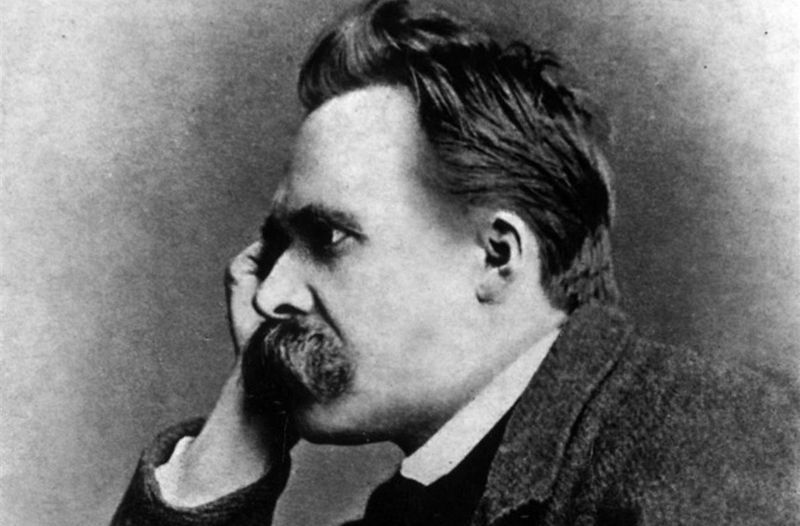I am a novice’s novice in philosophy, I’ll freely admit that. I’m not a student, not because my knowledge is expansive but because I am not taking that role in relation to anyone. As I begin this project against Nietzsche, something struck me that I want to respond to. It actually came to me as I watched a video about Jordan Peterson and postmodernism1 because the fact that Michel Foucault took on some of Nietzsche’s positions (specifically here the rejection of historical narrative and progressive history) came up. I went to look up Foucault and then I remembered that he’s been accused of child sex abuse. I wondered if I should look for someone else who had dealt with this subject. That brought me here.
I am concerned that people may think that I’m looking for a clean man.
Many people have used concepts that Nietzsche introduced (or, at least, that they were introduced to by Nietzsche) and achieved great things with them. Foucault as I’ve mentioned, Deleuze, Derrida, Weber, Jung, Bataille, Heidegger, and so on. Do I reject concepts like ressentiment and master/slave moralities not because they are untrue but because they are associated with Nietzsche, an unclean man? Should Nietzsche be erased from the history of philosophy for that reason? All this provided that I can actually prove that Nietzsche is unclean, of course. And the final question: Do we have to remove everyone who is unclean from our history?
My hesitation in the case of Foucault has to do with my concern for justice, but this isn’t a real hesitation. The comedian Bill Burr has a bit where he talks about the idle thought of running your car off the road and into people. It’s not that you’re actually considering doing it, but because it’s a possibility that’s open, even if it’s so abhorrent that it scares you, your mind touches upon it and then leaves.
I can’t erase Nietzsche any more than I can erase Foucault, just like I can’t erase Hitler or Chiang Kai-shek or Julius Caesar. Not erasing them does not mean condoning any of their crimes. When I refer to myself or my project as anti-Nietzschean, what I mean is that I have a specific thesis: The vast majority of philosophers who have adopted Nietzsche’s ideas are not adopting Nietzscheanism and their main goal is and always has been to adapt Nietzsche’s tools for their own purposes.
My goal is to demonstrate that Nietzsche is an unclean man. That is absolutely true. But my purpose is not to say that people who have used his ideas are wrong to do so. My purpose is to demonstrate that Nietzsche’s goal was very specific and that “his philosophy”, as an object, deserves no reverence or regard. Nietzsche’s talent was not original thought but articulation. In particular, he articulated the aristocratic and elitist position. To that end, his work has been used by aristocrats and elitists — which is to say, conservatives and fascists — to seat their projects in respected philosophical terms.
The appeal of Nietzsche’s thought for non-rightist philosophers is, I believe, exactly that. Before Nietzsche, I imagine it was much more difficult to examine how aristocrats justified their great hoarded wealth in the light of simple facts like “it’s bad when there are people who are homeless and starving”. Now, with Nietzsche’s writing, people have a window into that petulant mind. Now people know that ah, the elites in their mansions believe that power is the ultimate. It’s not just life or freedom that they want, they want power above all. Hasn’t that observation remained true ever since Nietzsche made it? Is it because he created the idea and it took hold, or is it (as I believe) that he simply articulated what aristocrats already felt about the world? And with that, Foucault can say well, some people believe that power means domination (read: Nietzsche believes this), but actually it’s the ability to do what you want, and we can examine the phenomenon more generally and get an actual idea of what it is. But Nietzsche cannot provide that. He was never capable of providing that and, besides, that was never his goal.
Ultimately, and I freely admit that I may never do the great amount of labor that will be involved in a definitive proof of this statement, but ultimately, Nietzsche is attractive because conservative aesthetics are attractive but many who consider themselves left-wing are deeply distrustful of aesthetics, of popular appeals, of pageantry, and of bombast. Nietzsche now gives us a bridge to that world. But he is not a scenic bridge to linger on or an architectural feat to marvel on. He’s a rickety bridge over troubled water, and we should not forget that, for many of us, he leads into enemy territory.
People do an extraordinary amount of work to exonerate Nietzsche from the things that Nietzsche said and it is simply not necessary. Nietzsche will always undermine your attempt to make him not a monster because he was a monster. He was a monster like Speaker Mike Johnson is a monster, like Stephen Miller is a monster, like Elon Musk is a monster. He is a monster like a small town conservative bigwig is a monster. Has he murdered anyone yet? No. But do you really think that he would stop himself from turning you in if it came down to it, with the Hakenkreuz in the air? Do you think the man that took his time in excoriating Jewishness as even a feeling, do you think he is really standing by his sham opposition to antisemites?

Leave a Reply